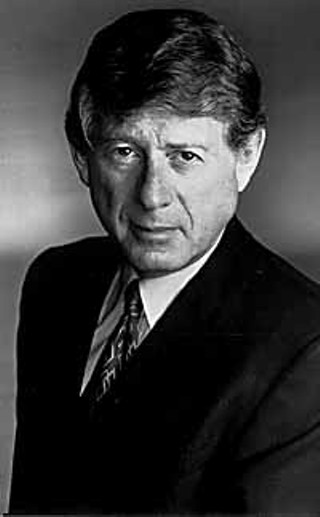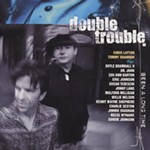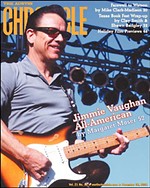World of Books
The Fifth Annual Texas Book Festival
By Andy Langer, Fri., Nov. 10, 2000

Ted Koppel
By design, ABC's Nightline isn't the place to catch a candid moment with host Ted Koppel. Coming from an era when reporters and interviewers probed for the truth without offering personal commentary, Koppel has spent much of Nightline's 20-year run being careful not to turn his Washington news desk into a pulpit for his opinions or politics. Equally by design, his new book Off Camera: Private Thoughts Made Public, focuses on opinions he wouldn't address on-air; as a day-by-day diary of 1999, it's rich on opinion and commentary. It touches on news of the day like the impeachment, Kosovo, and JFK Jr. head-on, but its best moments are indeed personal; passages on not just what he's reading (the Bible) and listening to (the LBJ tapes), but also what he's dreading (the publicity tour for Off Camera). At one point, he compares George W. Bush to Vanna White -- both the letter-turner and candidate, he says, have come off as likable and sympathetic by refusing to offer opinions.With the publication of Off Camera, the same can no longer be said about Koppel himself. And while it seems at least some of his reluctance to doing a lot of publicity for Off Camera is because he wouldn't be the one asking the tough questions, there's clearly no shortage of insightful answers:

On tips for a painless Ted Koppel interview: "The truth is a surprisingly strong line of defense -- not just presenting the truth, but what you believe in and doing it in a forthright fashion. There's something that happens almost every day on Nightline, and it's this: The guest almost invariably knows more about the subject than I do. We try to bring experts on, so this person is going to know more than I do. I'm probably better at appearing on television than he is. When I say 'appearing,' it's that I'm more comfortable in this medium. I've done this gig more than 5,000 times over the last 20 years. So don't try to play games with me on my own turf. It's that simple."
On the LBJ tapes and LBJ's legacy: "Time is a very useful telescope. ... Those tapes, what a phenomenal historical tool they are. We've never had that kind of an opportunity before, to listen to a man engaging in the art of being a president. He was just brilliant at the politicking. You forget how good he was. People used to talk of it with great admiration when he was the Senate majority leader. And sometimes it was with a little bit of cringing -- he was able to strong-arm as well as he sweet-talked. And while everybody acknowledged LBJ was a master politician, Vietnam sort of loomed as a shadow over his presidency to such a degree that I think we forgot how good he was at what he did. Beyond that, I think these tapes have also revealed how nervous he was about Vietnam. And how many serious reservations he had about committing the United States to the degree he ultimately did. And when you hear him expressing those concerns to guys like Senator Dick Russell and when you hear him talking to Dwight Eisenhower, he not only becomes more human, but you respect how smart he was. He was aware of the dangers of getting involved in Vietnam but really didn't see any alternative to it. And his best advisors really didn't see any alternative to it. To sort of blame him in the shorthand and very cruel fashion that I think many people did at the time is in retrospect not entirely fair. Then when you put all of that into the context of his many domestic accomplishments as president, then it's a different picture. I believe LBJ winds up being a much larger and important figure in our recent history than we credit him as being."
On George W. vs. LBJ: "There's nothing similar about LBJ and George W. on those tapes. I think the name of the political game in this country -- and especially the presidential campaigning game -- has become accident-avoidance. You try to get through the process annoying as few people as you possibly can. There was a time that leadership meant so clearly and explicitly spelling out what you were for and what you were against that nobody had any real doubts about where you were going. The second debate was a perfect example: two guys sitting there agreeing with each other much more than they disagreed. And it's not because they really do; wake either one of 'em up at three in the morning and say 'What do you really believe?' and I don't think there's a whole lot they really do agree on. But neither one wants to be perceived as angry or negative, or not likable. It's kind of sad that it's what the presidential selection process has come to that. Was that Lyndon Johnson? Hell no, you knew where Lyndon Johnson stood."
Koppel speaking candidly away from the Nightline desk may run the risk of altering the way we view Nightline, but if you come away from Off Camera sharing fewer of Koppel's opinions than you thought, that's fine by him. "People end up having preconceptions about me anyway," he says. "They assume they know my politics and what I like or don't like. I guess what I'm saying with this book is that if you don't like it or me after you've read it, I guess I'd rather be disliked for what I really believe than liked for something you think I believe."
Ted Koppel will read from Off Camera: Private Thoughts Made Public on Sunday, Nov. 12, at 11am in the House Chamber.








